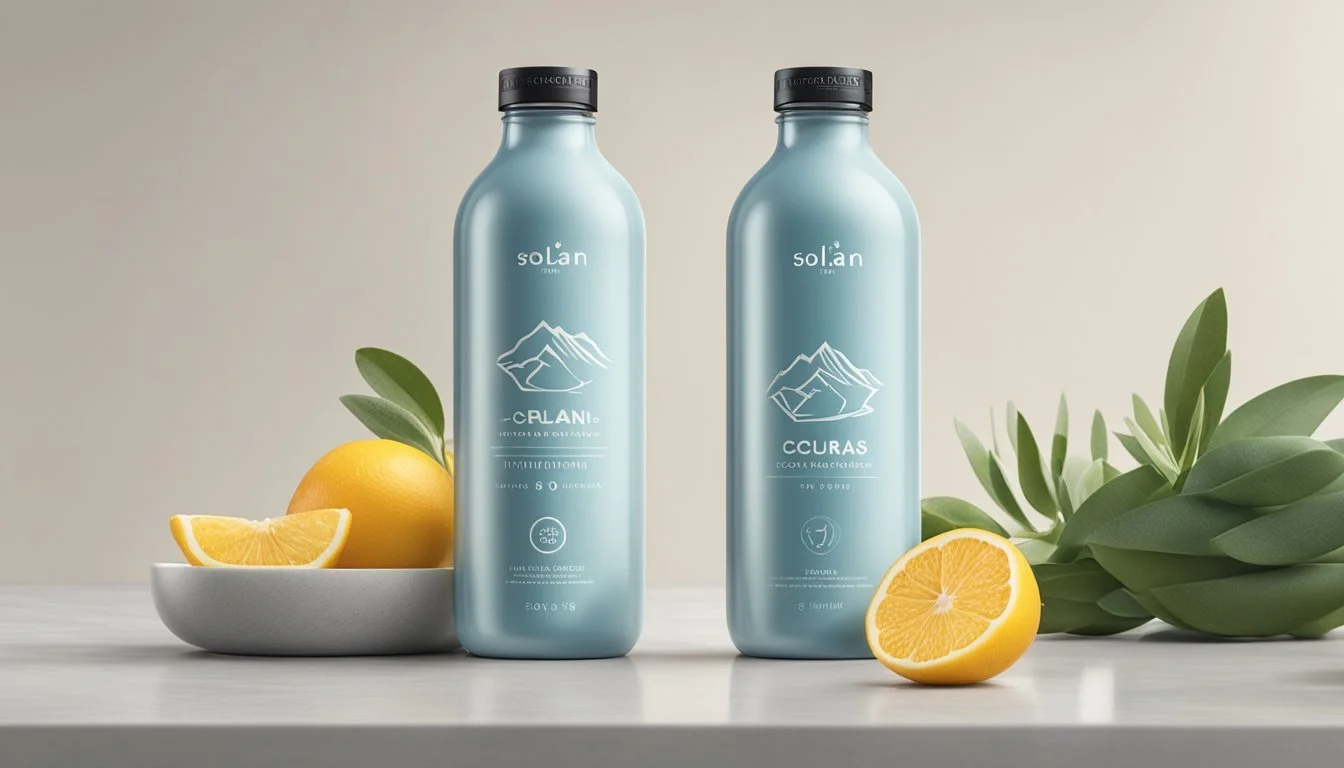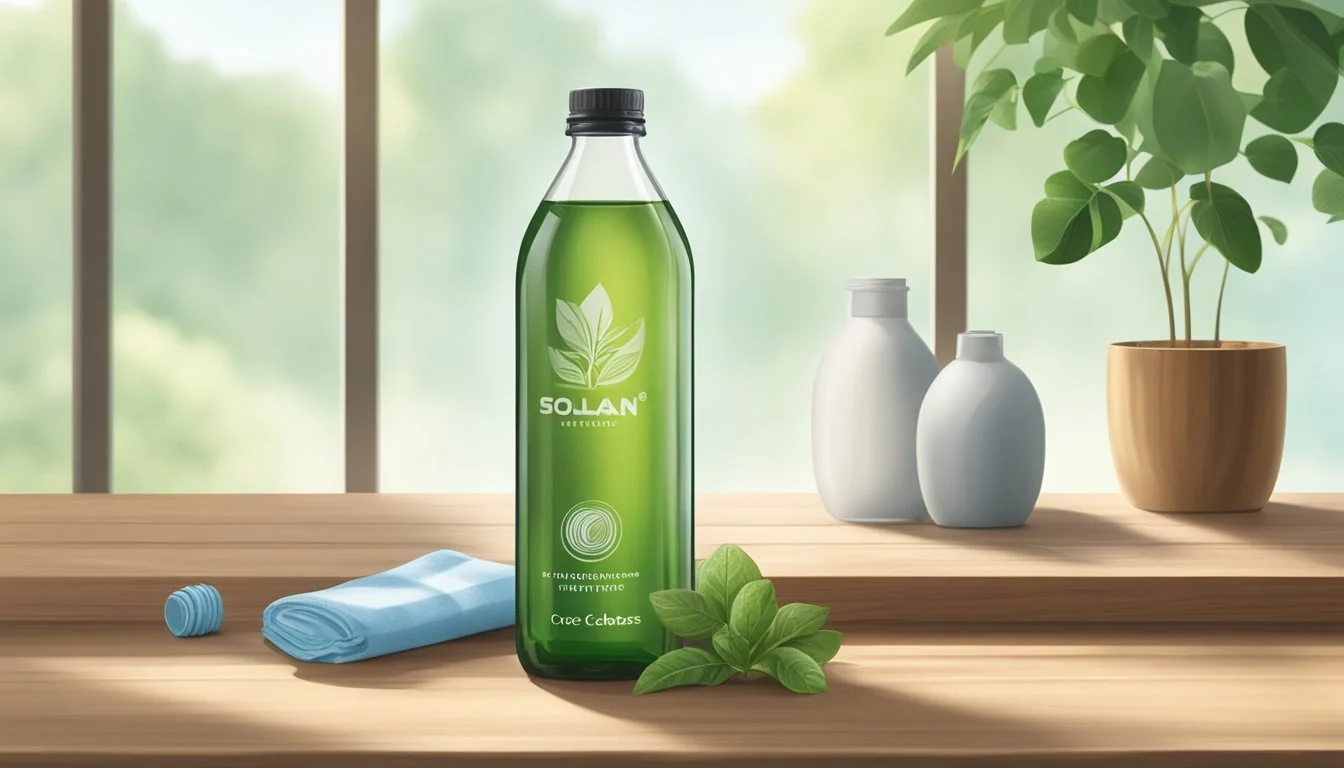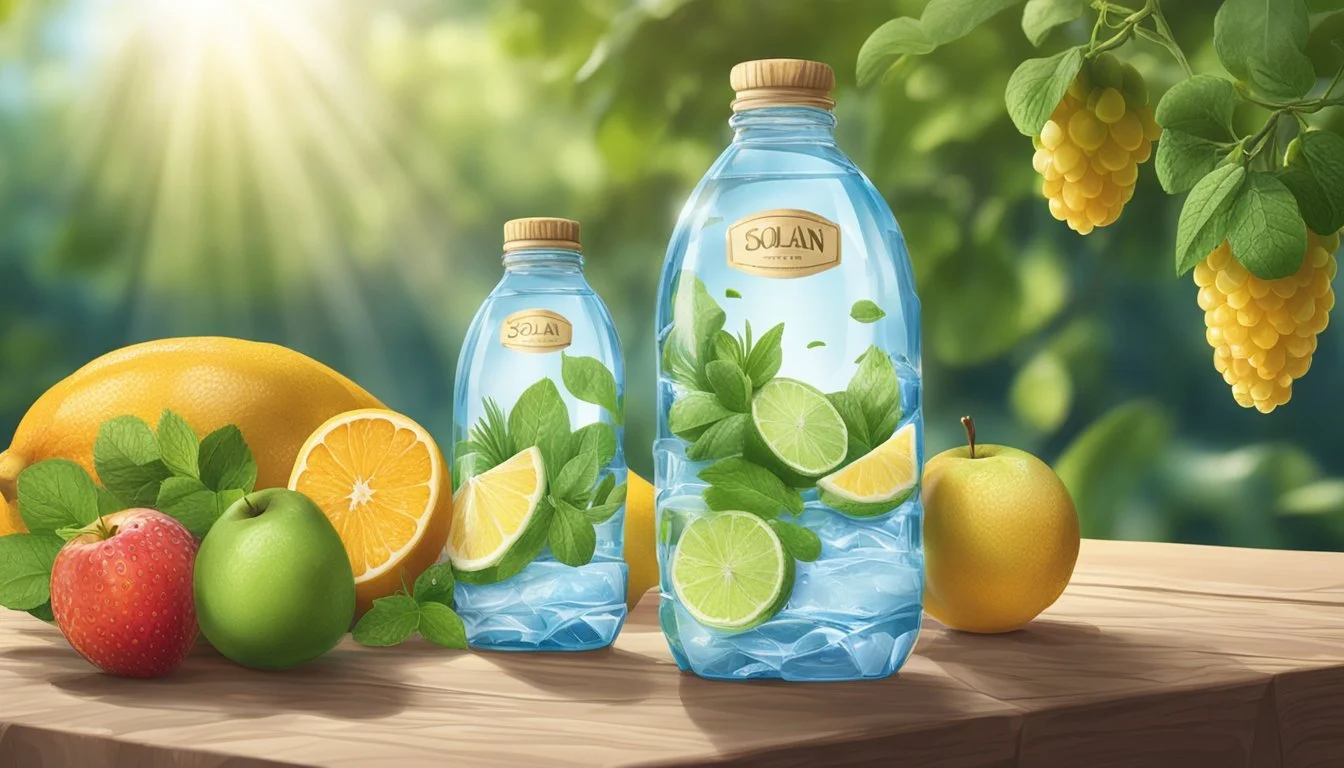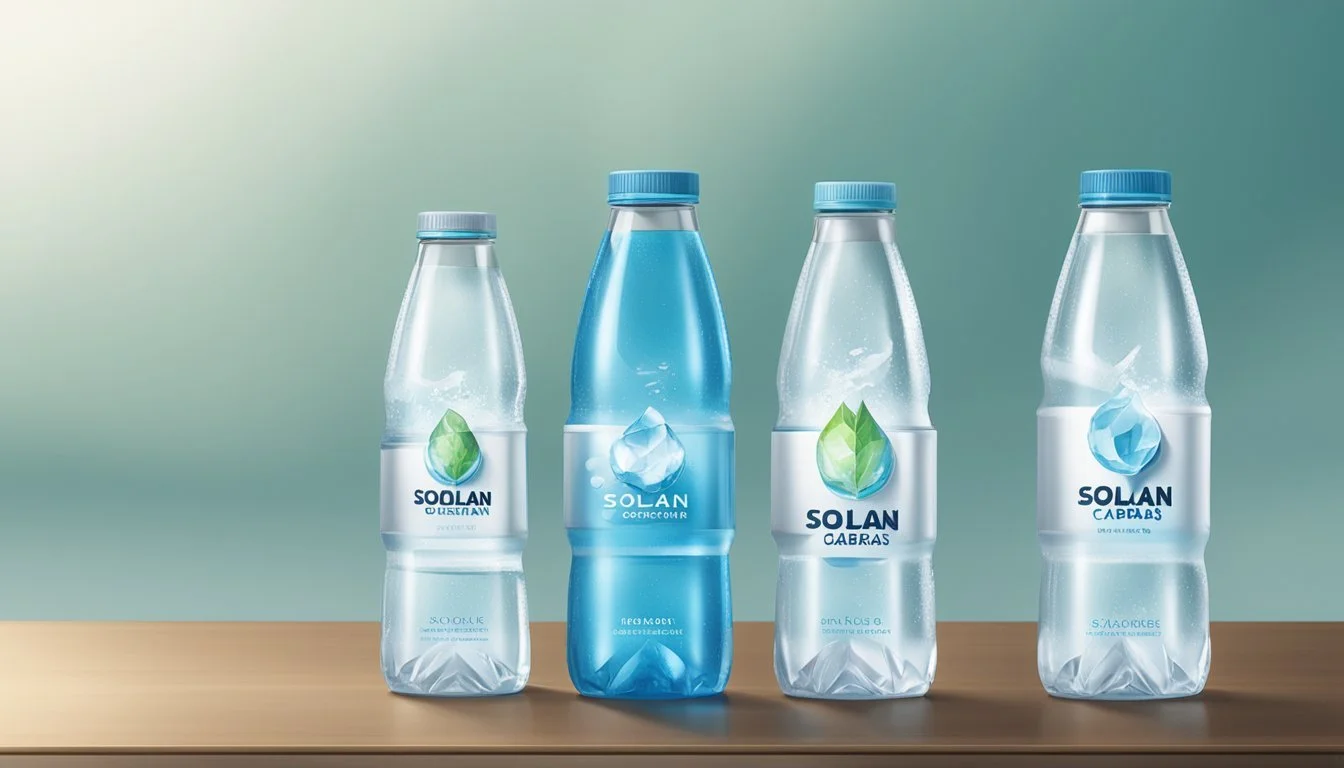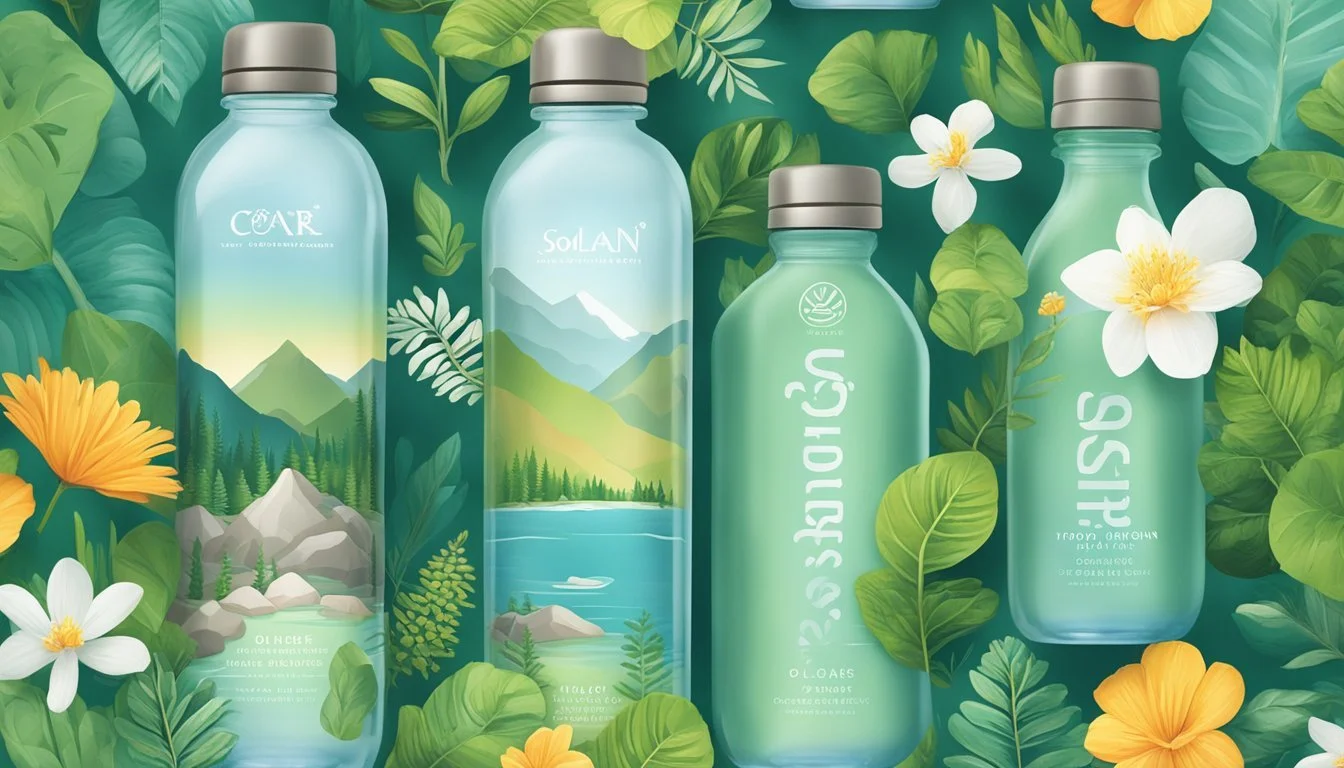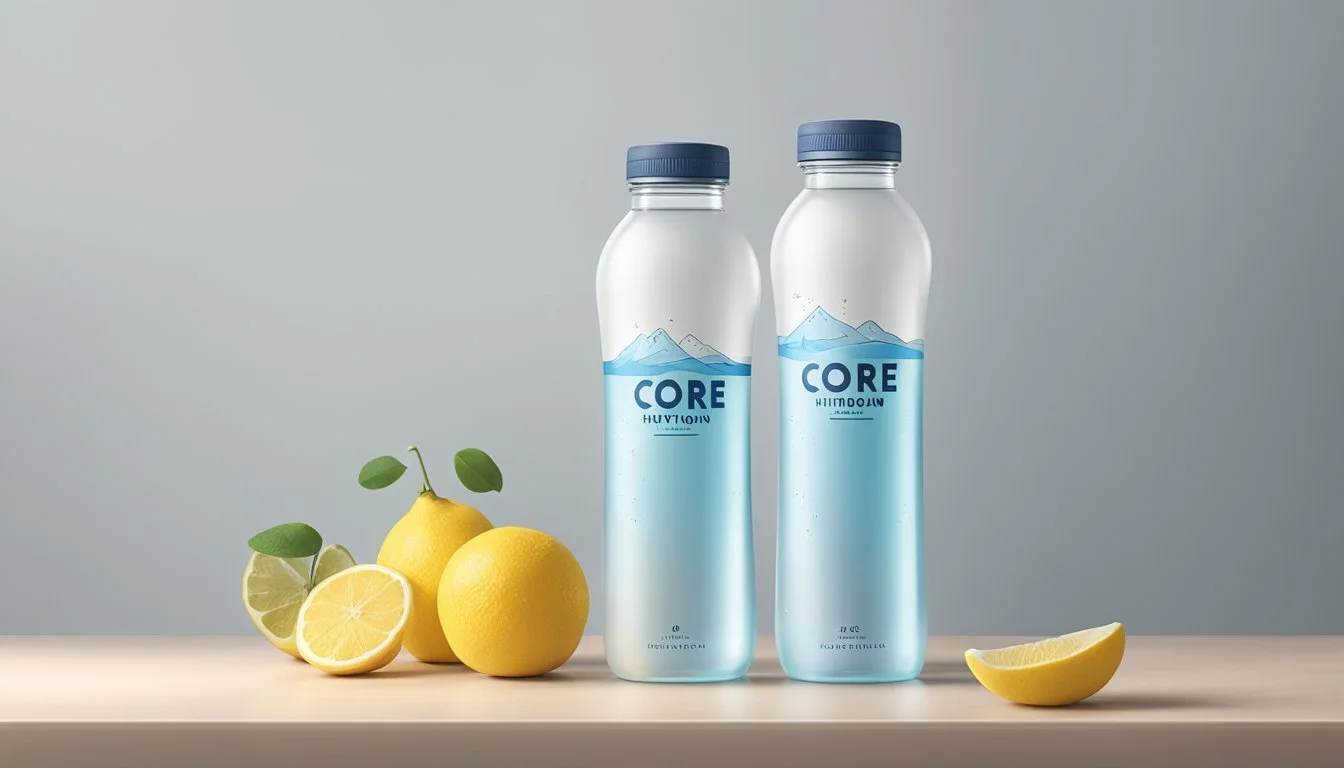Core Hydration vs. Solan de Cabras
Comparing the Best Bottled Water Brands
When choosing between Core Hydration and Solán de Cabras, consumers are often drawn to their unique selling points and health benefits. Core Hydration prides itself on its ultra-purified water with electrolytes and minerals added to match the body's natural pH. Alongside its ergonomic bottle design, it offers a balanced taste that appeals to health-conscious individuals.
In contrast, Solán de Cabras focuses on its natural spring water sourced from the Serranía de Cuenca in Spain, renowned for its purity and mineral content. It comes in iconic blue bottles that are both stylish and eco-friendly, emphasizing sustainability.
While both brands offer high-quality hydration, the choice between Core Hydration and Solán de Cabras ultimately depends on personal preference for mineral content and branding focus. Readers looking for a scientifically engineered balance might prefer Core Hydration, while those valuing natural mineral water and environmental consciousness may lean towards Solán de Cabras.
Understanding Bottled Water
Key aspects to consider when choosing bottled water include its source, treatment process, and labeling practices. These factors affect the taste, purity, and overall quality of the water.
Types of Bottled Water
Natural Spring Water: This type is sourced directly from a natural spring and is rich in naturally occurring minerals. It is often marketed for its purity and health benefits.
Purified Water: Purified water is typically sourced from municipal supplies or groundwater and undergoes processes such as distillation, deionization, or reverse osmosis to remove impurities. It is devoid of most minerals found in natural waters.
Mineral Water: Contains a specific amount of naturally occurring minerals. It must come from a protected underground source and be bottled at the source.
Labeling and Terminology
pH Levels: This indicates the acidity or alkalinity of the water. Brands like Core Hydration highlight a balanced pH level equivalent to the body’s natural pH.
Electrolytes: Minerals such as potassium, magnesium, and calcium are added to enhance hydration. These are present in both natural spring and purified waters, although the sources and quantities can differ.
Bottle Design: Marketing often emphasizes bottle design. For instance, Core Hydration’s ergonomic bottles are highlighted in product rankings.
Specific terminology and quality indicators on the label help consumers make informed choices based on their preferences for mineral content, source, and purification process.
The Brands: Core Hydration vs. Solán de Cabras
Explore detailed insights into Core Hydration and Solán de Cabras, covering their company history, product range, and market presence. Understand how each brand stands out in the competitive bottled water landscape.
Company Background and History
Core Hydration was launched with a focus on providing ultra-purified water with balanced pH levels.
Meanwhile, Solán de Cabras has a rich history rooted in Spain, originating from natural springs.
Core Hydration is known for its commitment to pH balance, aligning with the body's natural levels. This has positioned it as a choice for health-conscious consumers.
Solán de Cabras boasts a heritage dating back centuries, reflecting a longstanding tradition of quality and purity.
Product Range and Offerings
Core Hydration offers a product line that includes various sizes of its pH-balanced water. It is designed to appeal to those who prioritize both taste and health benefits.
The brand uses electrolytes and minerals such as potassium bicarbonate, magnesium chloride, and calcium chloride in its formulation.
Solán de Cabras provides spring water renowned for its clean, crisp taste that remains consistent even when not chilled.
The brand’s offerings are often associated with premium quality and are available in elegant blue bottles that underscore its premium market position.
Market Position and Recognition
Core Hydration is recognized for its innovative approach, marketing its water as perfectly balanced with a pH of 7.4.
This, combined with its modern, ergonomic bottle design, has helped the brand gain significant recognition in the health and wellness sector.
Solán de Cabras is a staple in the premium bottled water market, highly regarded for its purity and distinctive packaging.
Its presence in upscale markets and restaurants highlights its position as a sophisticated choice for discerning consumers.
Both brands have carved out distinct niches, with Core Hydration appealing to those seeking pH-balanced, electrolyte-enhanced water, and Solán de Cabras attracting those who value tradition and premium quality.
Water Source and Filtration Processes
Core Hydration and Solán de Cabras utilize distinct methods to ensure the purity and quality of their water, each with unique origins and filtration techniques. Core Hydration employs a reverse osmosis process while Solán de Cabras sources its water naturally from a spring in the Serranía de Cuenca mountains.
Core Hydration's Reverse Osmosis
Core Hydration begins with water sourced from municipal supply. The purification process includes reverse osmosis, a technique that forces water through a semi-permeable membrane to remove impurities.
This method eliminates contaminants such as heavy metals, chlorine, and other dissolved solids. Following reverse osmosis, the water is subjected to additional filtration stages, including activated carbon filtering and UV sterilization, to ensure maximum purity.
Electrolytes and minerals are added post-filtration to enhance taste and hydration. The resulting product is alkalized water with a perfect pH balance, marketed as ideal for optimal hydration.
Solán de Cabras' Natural Spring
Solán de Cabras water originates from a natural spring in the Serranía de Cuenca mountains of Spain. This aquifer, nourished by ancient thunderstorms, provides water naturally filtered through layers of rock over thousands of years.
Unlike many bottled waters, Solán de Cabras requires minimal artificial filtration. The natural filtration process in the aquifer contributes to the water's unique mineral composition and purity.
To maintain this purity, the water is directly bottled at the source. This ensures that the water retains its naturally balanced pH and essential minerals, offering a crisp and refreshing taste without the need for additives.
Composition and Mineral Content
Core Hydration and Solán de Cabras offer distinct compositions and mineral profiles. Assessing these differences can provide insight into which may better align with personal taste and health preferences.
Comparing Mineral Profiles
Solán de Cabras is a natural mineral water sourced from the Serranía de Cuenca mountains. Its mineral content includes bicarbonate, calcium, sodium, potassium, and magnesium. This water undergoes a natural filtration process lasting over 3,600 years, contributing to its mineral-rich profile.
Core Hydration, in contrast, is purified water with added electrolytes and minerals, aiming to achieve a balanced pH of around 7.4. It typically includes minerals such as calcium chloride, magnesium chloride, and potassium bicarbonate.
Here is a simplified comparison:
Mineral Solán de Cabras Core Hydration Bicarbonate Present Not specified Calcium Present Present (via additives) Sodium Present Not specified Potassium Present Present (via additives) Magnesium Present Present (via additives)
Health Implications
The mineral content of Solán de Cabras may offer notable health benefits due to its natural formation. Magnesium supports muscle function, while calcium is vital for bone health. The presence of bicarbonate can aid digestion and help maintain pH balance in the body.
Core Hydration focuses on hydration with added electrolytes, resembling the body's natural pH. This can help with maintaining hydration balance and potentially improve athletic performance. The added minerals, such as magnesium chloride and potassium bicarbonate, are meant to enhance hydration efficiency.
While Solán de Cabras provides naturally occurring minerals, Core Hydration offers a formula tailored for optimal pH balance and hydration, catering to diverse health and hydration needs.
Taste and Palate Appeal
Core Hydration and Solán de Cabras offer distinct taste experiences influenced by their unique mineral content and natural sources. Both cater to different palate preferences, from the slightly sweet profile of Solán de Cabras to the balanced pH of Core Hydration.
Flavor Profiles of Both Brands
Core Hydration emphasizes a taste that aligns with the body's natural pH level, around 7.4. This slightly alkaline balance contributes to a neutral and refreshing taste, with no strong aftertastes. Its purity ensures a clean flavor profile, making it suitable for various palate preferences.
Solán de Cabras, sourced from the Cuenca mountains in Spain, boasts a light, slightly sweet taste attributed to its natural mineral content. This brand is known for its velvety texture, which differentiates it from other bottled waters. The mineral blend provides a subtle complexity, creating a distinctly pleasant drinking experience.
The Role of Minerals in Taste
Mineral content plays a crucial role in the taste of bottled water. Core Hydration's perfect pH balance means a lower presence of minerals, which ensures a smooth and neutral taste. Its minimalistic approach to mineral content aims to enhance hydration without altering the natural flavor too much.
In contrast, Solán de Cabras contains higher levels of minerals like calcium and magnesium. These contribute to its characteristic slightly sweet and mineral-rich taste. The presence of these minerals not only affects the flavor but also adds to the water's distinct freshness, making it a preferred choice for those looking for more than just hydration.
Health and Hydration
In comparing the health and hydration benefits of Core Hydration and Solán de Cabras, several factors such as pH balance, presence of electrolytes, and suitability for active lifestyles are essential for health-conscious consumers.
Hydrating Properties of Core and Solán
Core Hydration's water boasts a balanced pH of around 7.4, which is in sync with the body’s natural pH level. This balance can potentially aid in optimal hydration. Core water contains potassium bicarbonate, magnesium chloride, and calcium chloride, which are essential electrolytes that support various bodily functions.
Solán de Cabras, on the other hand, is sourced naturally from the mountains of Spain and maintains a neutral pH around 7.4. It is also naturally enriched with minerals like calcium and magnesium, contributing to overall hydration and health.
These properties ensure the water is easily absorbed into the bloodstream, supplementing daily hydration needs.
Active Lifestyle and Sports
For those with active lifestyles, hydration becomes even more critical. Core Hydration adds electrolytes to its formula to help replenish what is lost during physical activity. These electrolytes, including magnesium, potassium, and calcium, can help maintain electrolyte balance and prevent cramping and dehydration.
Solán de Cabras is celebrated for its naturally balanced mineral content, making it an excellent choice for athletes and fitness enthusiasts. The water’s purity and mineral balance help support sustained physical and mental performance, reducing fatigue during prolonged activities.
In terms of portability, both brands offer convenient bottle designs, but Core’s ergonomically shaped bottle is specifically crafted for ease of use during workouts. This design caters directly to sports-minded individuals aiming for optimal hydration.
Environmental Considerations
Both Core Hydration and Solán de Cabras navigate the challenges of packaging sustainability and the environmental impact of plastic bottles. Below, key factors regarding their packaging choices and the impact of plastic usage are discussed.
Packaging and Sustainability
Core Hydration primarily uses plastic bottles while ensuring they are BPA-free and recyclable. However, they don't explicitly focus on recycled content in their packaging. Their sleek, ergonomically friendly design may appeal to consumers but raises questions about its environmental benefits.
Solán de Cabras often uses glass bottles, which are highly recyclable and can be reused multiple times. Glass, although heavier and energy-intensive to transport, significantly reduces the dependency on single-use plastic. This strategic choice positions Solán de Cabras as a brand committed to minimizing its environmental footprint.
The Impact of Plastic Bottles
Plastic bottles are a significant environmental concern due to their contribution to pollution and high carbon footprint. Core Hydration’s use of plastic, despite being recyclable, poses challenges. Recycling rates for plastic remain low globally, and a substantial amount ends up in landfills or oceans.
Glass bottles from Solán de Cabras, though not without environmental impact, are less likely to contribute to long-term pollution. Their durability means they can be recycled more effectively, lowering the overall environmental burden. This positions Solán de Cabras favorably in terms of reducing plastic waste and its associated environmental damage.
Consumer Experience and Branding
Both Core Hydration and Solán de Cabras emphasize unique aspects of their branding and packaging to appeal to their target consumers. The design choices and marketing strategies play significant roles in shaping customer perceptions and experiences.
Packaging Design and Materials
Core Hydration uses ergonomically shaped plastic bottles that are 100% recyclable and BPA-free. The bottle design caters to a health-conscious market, emphasizing ease of grip and a modern look. The inclusion of added electrolytes and balanced pH in Core Hydration’s product is highlighted by its sleek, transparent bottles.
In contrast, Solán de Cabras markets its water in a distinctive blue glass bottle, symbolizing purity and tradition. This glass bottle is reusable, aligning with environmentally conscious values. The premium branding conveyed by the blue glass emphasizes exclusivity and a longstanding heritage dating back millennia.
Marketing Strategies and Customer Perception
Core Hydration adopts a modern marketing approach, often leveraging social media platforms to reach health-focused and active consumers. Their brand messaging includes optimal hydration and body balance, which resonates with athletes and fitness enthusiasts. The sleek bottle design combined with claims of ideal pH balance strengthens their health-centric appeal.
Meanwhile, Solán de Cabras focuses on heritage and purity in its branding. Advertisements often highlight the water's natural origins from the Serranía de Cuenca. This historical narrative appeals to consumers who value authenticity and tradition. Their marketing frequently features the luxurious blue bottle, reinforcing its status as a premium product.
Both brands employ distinct strategies to build a strong customer base. Core Hydration's emphasis on modern health benefits contrasts with Solán de Cabras' traditional and premium image, influencing consumer choices based on lifestyle preferences and values.
Certifications and Compliance
Understanding the certifications and compliance standards of bottled water brands is essential for consumers to trust the product. For Core Hydration and Solán de Cabras, this scrutiny includes their adherence to quality assurance protocols and legal industry standards.
Quality Assurance and Safety Standards
Both Core Hydration and Solán de Cabras prioritize rigorous quality assurance procedures to ensure product safety.
Core Hydration boasts a pH level of 7.4, designed to match the human body's natural pH balance. Their water is purified through a multi-step process and enhanced with electrolytes, ensuring it meets the safety standards for consumption. They use BPA-free, 100% recyclable plastic bottles, appealing to environmentally conscious consumers.
Solán de Cabras, a Spanish brand with a long-standing history, highlights its purity and natural source. The water is known for its mineral content and is sourced from a protected environment. This ensures it maintains a high standard of purity without artificial additives. Solán de Cabras is bottled in blue glass bottles, which are not only aesthetically appealing but also limit exposure to sunlight, preserving the water’s quality.
Legal and Industry Requirements
Compliance with legal and industry standards is non-negotiable for both brands.
Core Hydration adheres to the regulations set forth by the U.S. Food and Drug Administration (FDA) and conforms to the Environmental Protection Agency (EPA) guidelines on safe drinking water. This includes regular testing for contaminants and certification under NSF International standards, ensuring the water's purity and safety.
Solán de Cabras complies with European Union water regulations, which are among the strictest globally. The brand’s long history underscores its commitment to maintaining compliance with evolving industry standards. Their water undergoes stringent testing processes and meets the criteria for natural mineral water, a certification indicating the highest quality and purity levels.
This adherence to both local and international standards ensures that consumers can trust the safety and quality of the water they purchase from either brand.
More About Core Hydration
Acqua Panna vs Core Hydration: Which Bottled Water is Better?
Boxed Water vs Core Hydration: Which Bottled Water is Better?
Core Hydration vs Alkaline88: Which Bottled Water is Better?
Core Hydration vs Aqua Carpatica: Which Bottled Water is Better?
Core Hydration vs Cascade Mountain: Which Bottled Water is Better?
Core Hydration vs Castle Rock: Which Bottled Water is Better?
Core Hydration vs CBD Living: Which Bottled Water is Better?
Core Hydration vs Crystal Geyser: Which Bottled Water is Better?
Core Hydration vs Crystal Lake: Which Bottled Water is Better?
Core Hydration vs Essence pH10: Which Bottled Water is Better?
Core Hydration vs Hawaii Volcanic: Which Bottled Water is Better?
Core Hydration vs Hawaiian Springs: Which Bottled Water is Better?
Core Hydration vs Ice Mountain: Which Bottled Water is Better?
Core Hydration vs Icelandic Glacial: Which Bottled Water is Better?
Core Hydration vs Just Water: Which Bottled Water is Better?
Core Hydration vs Kirkland Signature: Which Bottled Water is Better?
Core Hydration vs Liquid Death: Which Bottled Water is Better?
Core Hydration vs Mountain Valley Spring Water: Which Bottled Water is Better?
Core Hydration vs Nestle Pure Life: Which Bottled Water is Better?
Core Hydration vs Open Water: Which Bottled Water is Better?
Core Hydration vs Poland Spring: Which Bottled Water is Better?
Core Hydration vs Proud Source: Which Bottled Water is Better?
Core Hydration vs Purely Sedona: Which Bottled Water is Better?
Core Hydration vs Richard's Rainwater: Which Bottled Water is Better?
Core Hydration vs San Pellegrino: Which Bottled Water is Better?
Core Hydration vs Simple Truth: Which Bottled Water is Better?
Core Hydration vs Smartwater: Which Bottled Water is Better?
Core Hydration vs Talking Rain AQA: Which Bottled Water is Better?
Core Hydration vs Topo Chico: Which Bottled Water is Better?
Core Hydration vs Weird Water: Which Bottled Water is Better?
Core Hydration vs Whole Foods 365: Which Bottled Water is Better?
Core Hydration vs Whole Foods Italian Still Mineral water: Which Bottled Water is Better?
Core Hydration vs Zephyrhills: Which Bottled Water is Better?
More About Solan de Cabras
Acqua Pana vs Solan de Cabras: Which Bottled Water is Better?
Antipodes vs Solan de Cabras: Which Bottled Water is Better?
Aqua Carpatica vs Solan de Cabras: Which Bottled Water is Better?
Arrowhead vs Solan de Cabras: Which Bottled Water is Better?
Boxed Water vs Solan de Cabras: Which Bottled Water is Better?
Castle Rock vs Solan de Cabras: Which Bottled Water is Better?
Deer Park vs Solan de Cabras: Which Bottled Water is Better?
Hawaiian Springs vs Solan de Cabras: Which Bottled Water is Better?
Ice Mountain vs Solan de Cabras: Which Bottled Water is Better?
Icelandic Glacial vs Solan de Cabras: Which Bottled Water is Better?
Just Water vs Solan de Cabras: Which Bottled Water is Better?
Mountain Valley Spring Water vs Solan de Cabras: Which Bottled Water is Better?
Nestle Pure Life vs Solan de Cabras: Which Bottled Water is Better?
Poland Spring vs Solan de Cabras: Which Bottled Water is Better?
San Pellegrino vs Solan de Cabras: Which Bottled Water is Better?
Smartwater vs Solan de Cabras: Which Bottled Water is Better?
Solan de Cabras vs 1907water: Which Bottled Water is Better?
Solan de Cabras vs Alkaline88: Which Bottled Water is Better?
Solan de Cabras vs Big Chill: Which Bottled Water is Better?
Solan de Cabras vs BodyArmor: Which Bottled Water is Better?
Solan de Cabras vs Cascade Mountain: Which Bottled Water is Better?
Solan de Cabras vs CBD Living: Which Bottled Water is Better?
Solan de Cabras vs Crystal Geyser: Which Bottled Water is Better?
Solan de Cabras vs Crystal Lake: Which Bottled Water is Better?
Solan de Cabras vs Essence pH10: Which Bottled Water is Better?
Solan de Cabras vs Hawaii Volcanic: Which Bottled Water is Better?
Solan de Cabras vs Kirkland Signature: Which Bottled Water is Better?
Solan de Cabras vs Liquid Death: Which Bottled Water is Better?
Solan de Cabras vs Open Water: Which Bottled Water is Better?
Solan de Cabras vs Proud Source: Which Bottled Water is Better?
Solan de Cabras vs Pure Life: Which Bottled Water is Better?
Solan de Cabras vs Purely Sedona: Which Bottled Water is Better?
Solan de Cabras vs Richard's Rainwater: Which Bottled Water is Better?
Solan de Cabras vs Simple Truth: Which Bottled Water is Better?
Solan de Cabras vs Talking Rain AQA: Which Bottled Water is Better?
Solan de Cabras vs Weird Water: Which Bottled Water is Better?
Solan de Cabras vs Whole Foods 365: Which Bottled Water is Better?
Solan de Cabras vs Whole Foods Italian Still Mineral water: Which Bottled Water is Better?
Topo Chico vs Solan de Cabras: Which Bottled Water is Better?
Zephyrhills vs Solan de Cabras: Which Bottled Water is Better?

